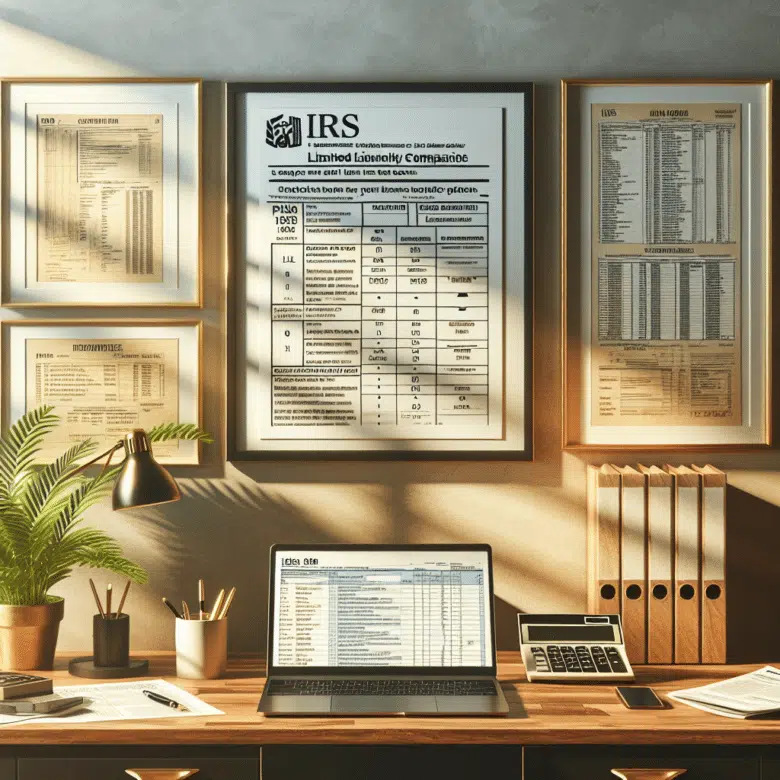How to Maximize Your Business Meal Deductions in 2024
In the business world, meals and entertainment play a crucial role in building relationships, closing deals, and fostering a positive company culture. As a business owner or self-employed individual, it’s vital to understand the regulations and rules surrounding business meal deductions, also known as business tax deductions. By taking advantage of these deductions, you can maximize your tax benefits and save significant money through effective tax planning. In this comprehensive guide, we’ll walk you through everything you need to know about business meal deductions and how to navigate the complex landscape of tax regulations, making it a great way to save money for your business.
Introduction to Business Meal Deductions
As a business owner or self-employed individual, you can deduct ordinary and necessary business meal expenses on your tax return. These deductions can mainly reduce your taxable income and lower your overall tax liability. It’s really important to know what the IRS expects from you, as outlined by the internal revenue service, so you can follow the rules and avoid any problems if they check your tax return for specific information and complete records.
Business meals include meals and entertainment expenses directly related to your trade or business. For meal expenses to count as a business deduction, they must fit certain rules and have a clear business reason. It’s important to keep detailed records and documentation to substantiate your expenses and support your deductions.
The Changing Landscape of Meal Deductions
Before we delve into the specifics, it’s important to note that the deductibility of meals and entertainment expenses has undergone recent changes. The Consolidated Appropriations Act, which became law on December 27, 2020, brought about significant modifications to the deductibility of meals. While food and beverages purchased from restaurants were 100% deductible in tax years 2021 and 2022, there was a temporary exception to the 50% limit on deductions for food or beverages. This exception allowed businesses to deduct business meals at restaurants and bars at 100% during this time, as well as meals purchased from grocery stores, convenience stores, drug stores, and liquor stores, as long as they were meant to be consumed immediately. However, the rules have now reverted to the provisions outlined in the Tax Cuts and Jobs Act.
2023 Meals and Entertainment Deduction
Starting in 2023, the rules for deducting meals and entertainment expenses have changed. Under the Consolidated Appropriations Act signed into law on December 27, 2020, meals purchased from restaurants are no longer 100% deductible, except for those in the restaurant industry. This industry has faced tremendous losses due to COVID-19, with more than $280 billion in sales lost in its first year of occurrence, according to the National Restaurant Association. To help restaurants recover from the effects of the pandemic, Congress passed the Consolidated Appropriations Act of 2021 to allow a temporary 100% deduction for restaurant meals. This means that meals purchased at restaurants are still fully deductible for those in the restaurant industry.
To understand the impact of these changes, let’s break down the meal deductions using some examples:
Type of Expense | Deduction
Entertaining Clients (e.g., golf games) | 0% deductible
Business meals with clients | 50% deductible
Office snacks and meals | 50% deductible
Company-wide party | 100% deductible
Meals & entertainment (compensation) | 100% deductible
It’s important to note that these deductions apply to meals and entertainment expenses incurred for business purposes. Personal expenses are generally not deductible.
Fully Deductible Meals and Entertainment
While the rules have changed, there are still certain meals and entertainment expenses that remain fully deductible. Here are some common examples:
- A company-wide holiday party where food and drinks are provided.
- Food and drinks, such as a promotional event, are free of charge for the public.
- Food is taxable compensation to employees and is reported on the W-2 form.
By taking advantage of these fully deductible expenses, you reduce your taxable income and save a significant amount on your tax bill.
50% Deductible
In addition to fully deductible expenses, various meal and entertainment expenses are 50% deductible. Here are some examples:
- A meal with a client where work is discussed, as long as it is not lavish.
- Employee meals at conferences are beyond the cost of the ticket.
- Employee meals while traveling, as defined by the IRS.
- Treating a few employees to a meal, as long as it doesn’t exceed half of all employees.
- Food expenses for board meetings.
- Dinner is provided for employees working late.
Understanding and utilizing these 50% deductible expenses allows you to enjoy tax savings while providing necessary meals and entertainment for your business activities.
Non-Deductible
While there are various deductible meal expenses, it’s essential to be aware of non-deductible expenses to avoid any compliance issues. Here are some examples of non-deductible expenses:
- Meals where you invite friends or spouses of clients to a restaurant (only 50% of the client’s portion is deductible).
- Entertainment expenses such as golf games, sporting events, or recreational activities.
- Expenses incurred for meals that are considered lavish.
It’s essential to keep precise records of your meal expenses and seek guidance from a tax professional to ensure adherence to current regulations.
Exceptions
Certain entertainment and meal expenses can still be deductible if they are integral to your business premises. For instance, if you own a piano bar, the cost of a piano player may be deductible. Similarly, food bloggers or theatre critics may deduct the cost of meals or plays they review. Additionally, you can separate meal costs from entertainment expenses for some events. For example, while renting a room at a country club might not be deductible, the catering for the event held on the business premises at athletic clubs for the general public might be.
Criteria for Deductions
You must be self-employed or operating a business to qualify for business meal deductions. Employees with W-2 jobs are not eligible. Meals must be consumed with a current or potential client, business contact, or consultant. Generally, meals for guests like spouses are not deductible for the taxpayer. Usually, meals must be from a restaurant or caterer, but larger in-house events may qualify if the facility’s annual revenue equals or exceeds the cost of business meetings of employees.
Documenting Your Deductions
It’s important to keep good records to prove your deductions if the tax office checks. Here are some key pieces of information you should include when documenting your deductions:
- Date of meal: Note the date of the meal.
- Business purpose: Explain how the meal is related to your business.
- Attendees: List the names, titles, and affiliations of those present.
- Venue: Include the name of the restaurant or location.
- Total bill amount: Record the total bill, including taxes and tips.
By keeping detailed records, you can confidently support your deductions and demonstrate their legitimacy if the IRS requests documentation.
Reporting Your Meal Deductions
When it comes time to report your meal deductions, the specific forms you need will depend on your business structure. Here is a general overview of the forms typically used for reporting deductions:
- Sole Proprietor or Single-Member LLC: If you’re a sole proprietor or have a single-member LLC, you’ll report your deductions on Schedule C, which is part of Form 1040 for your personal taxes.
- Partnerships and Multi-Member LLCs: Partnerships and multi-member LLCs should report their deductions on Form 1065 (US Return of Partnership Income).
- C Corporations: When your business is a C corporation, you’ll report your deductions using Form 1120, which is the US Corporation Income Tax Return form.
- S Corporations: S corporations should report their deductions on Form 1120S (US Income Tax Return for an S Corporation).
It’s important to consult with a qualified CPA or tax professional who can guide you through the reporting process and ensure that you are using the correct forms for your business.
Per Diem Option: A Simplified Approach
If you want to keep things simple when deducting meal expenses for business trips, you can choose the per diem option. This method offers fixed rates for meals and incidental expenses depending on where you’re traveling within the United States. If you’re in a pricier area in the US, you get $74 a day; if it’s a cheaper area, it’s $64. To qualify for the per diem method, you must be traveling away from your tax home for business purposes, and you can use per diem rates for figuring travel expenses within the U.S. The General Services Administration (GSA) updates per diem rates each year, and this US-GSA page provides each year’s rates. Your tax home is generally considered where your primary business activities are conducted.
When using the per diem method, you are not required to keep detailed records of your actual meal expenses. However, you should still maintain records of your travel dates, destinations, and the business purpose of your trips.
Consult with a Qualified CPA
Navigating the complexities of business meal deductions can be challenging, especially with the ever-changing tax laws and regulations. It’s a good idea to talk to a qualified accountant or tax expert to make sure you’re getting all the deductions you can and following the rules set by the tax office.
A CPA can provide personalized guidance based on your specific business needs, help you identify eligible deductions, and assist with proper documentation and reporting. By working with a professional, you can have peace of mind knowing that your business is taking full advantage of available deductions while minimizing the risk of triggering an IRS audit.
Tips for Maximizing Business Meals Deductions
To make the most of your business meal deductions, consider implementing the following strategies:
- Separate Business and Personal Expenses: Maintain separate accounts or credit cards for business and personal expenses. This practice simplifies record-keeping and ensures that only eligible business expenses are deducted.
- Keep Detailed Records: Keep thorough records of all your business meal expenses, such as saving receipts and invoices and making notes on the purpose of the meal and who attended. This info will really help when you’re doing your taxes.
- Implement an Expense Tracking System: Utilize technology or dedicated software to track and categorize your expenses accurately. This will streamline the process of identifying and organizing deductible meal expenses.
- Understand the Substantiation Requirements: To claim meal deductions, you must meet specific substantiation requirements set by the IRS. This includes documenting the time, place, business purpose, and individuals present during the meal. Consult with a tax professional to ensure you meet all the requirements.
- Consult with a Tax Professional: Dealing with tax deductions can be tough. It’s a good idea to get help from a tax expert who knows their stuff and can make sure you’re following all the rules.
Conclusion
Business meal deductions can provide significant tax benefits for business owners and self-employed individuals. If you know the rules about these deductions, you can save more on your taxes and manage the complicated tax rules better. Remember to keep accurate records, consult professionals when you need help, and stay updated on any changes to tax laws. Proper planning and documentation allow you to take full advantage of business meal deductions and optimize your overall tax strategy.
For expert guidance on maximizing your business meal deductions and navigating tax regulations, consult APC Tax Services. Let our experienced professionals help you save more on your taxes. Visit APC1040.com today for personalized tax assistance.
FAQs
What are business meal deductions and how do they work?
Business meal deductions are tax deductions that allow business owners to deduct a portion of their meal expenses when conducting business. In general, you can deduct 50% of the cost of meals that are directly related to business activities, such as meals with clients or meals during business travel.
What type of meals can be deducted as a business expense?
Meals that can be deducted as a business expense include meals with clients or customers, meals during business travel, meals during business meetings or conferences, and meals provided for employees on business premises. It’s important to keep detailed records and receipts to support these deductions.




